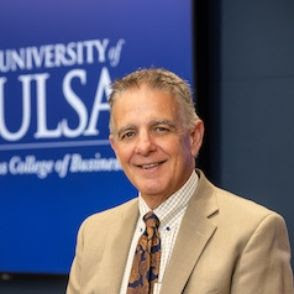I was anxious when our oldest child left for college. I was concerned about the challenges to her Christian faith that she would encounter. Midway through her first semester, she called home upset.
She had an assignment that required her to attend an off-campus event whose goals conflicted with our faith. It was a required assignment in a required course. The following year, she transferred to another state university. In her Business Law course, she was singled out by her professor for being a Christian and ridiculed in front of the class.
She was hurt. I was aghast.
At the time, I was a CFO of an Oklahoma company. Shortly after my daughter’s experiences, a mentor who was the director of the MBA program at my alma mater called me.
“Toby, you have talked about possibly teaching at the college level in the 4th quarter of your career,” he said. “We are starting a PhD program in an executive format. It will be the most rigorous three years of your life. But you can earn an AACSB accredited PhD in business and keep your CFO job. What do you think?’”
Praying with my wife, we felt this was God’s leading: to work at a university and represent a Christian worldview. Upon completion of my PhD, I was offered a full-time position and began teaching MBA courses.
Now, it was my turn to feel the pressure.
Self-identifying as a Christian to my students, I discovered Faculty Commons, and they helped me in legal and winsome ways to bring my faith to my teaching. When appropriate, I talked with students about spiritual things, often using Heather Holleman’s book The Six Conversations: Pathways to Communicating in an Age of Isolation and Incivility. But I was being aggressively recruited by a private sector company, and I left the university.
Like Jonah avoiding Nineveh, I soon sensed I was missing my true calling. I wasn’t swallowed by a literal fish, but the figurative fish of the obstacles around me was unmistakable. As doors closed in my business and opened at the University of Tulsa, I sensed God’s direction.
Back in the classroom teaching Business Strategy, I was able to tactfully sprinkle spiritual principles into my teaching, paving the way for crucial conversations with students.
Looking for ways to bring the gospel to the University of Tulsa, I gathered a group of believing professors to establish a local Faculty Commons ministry. Next, I brought the founder of one of the world’s largest real estate investment companies, David Ridley, to speak in my classes.
While David enjoys lecturing on business principles, he loves to talk about the one truly important thing in life: his relationship with God.
After David’s lectures, one of my students observed, “You and Mr. Ridley are different from other professors; you go out of your way to help students. Why?”
“Our faith teaches us that the second most important thing we can do is love our neighbors, and that includes our students,” I replied. Pondering this, the student asked, “Well, if caring for others is the second most important thing, what is the most important thing?”
“If you have time for a cup of coffee, I can explain it to you.”
Toby Joplin
Business
University of Tulsa

